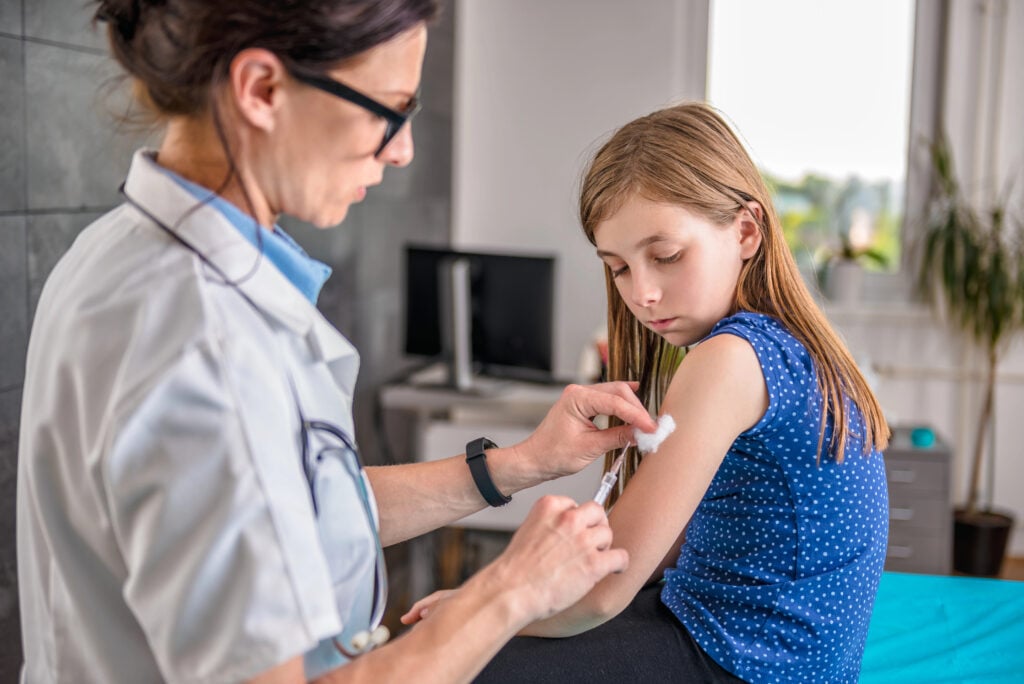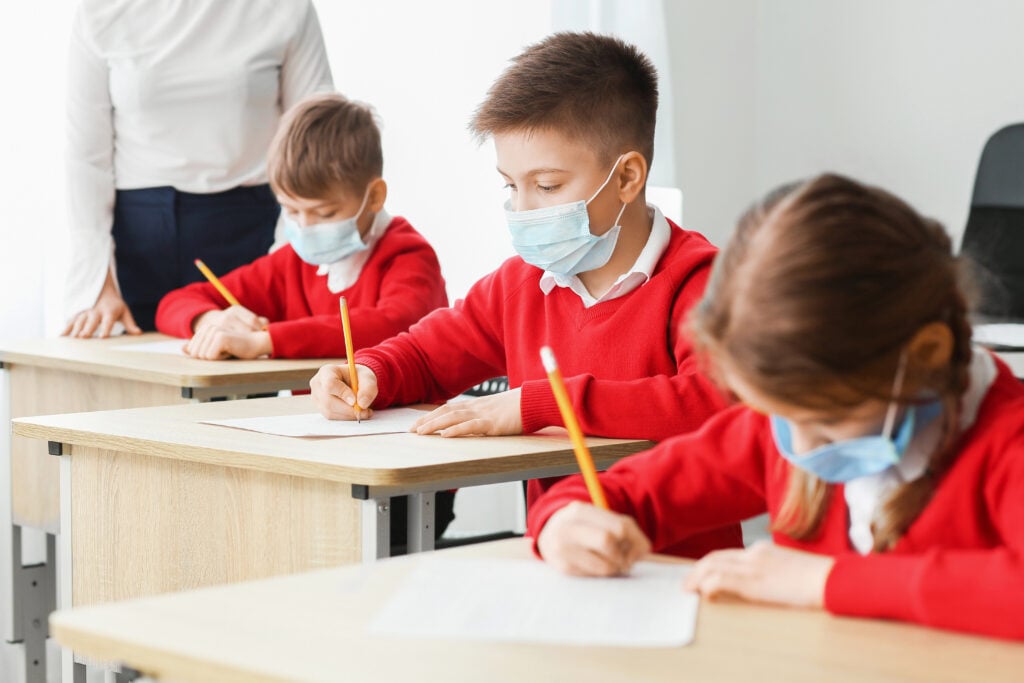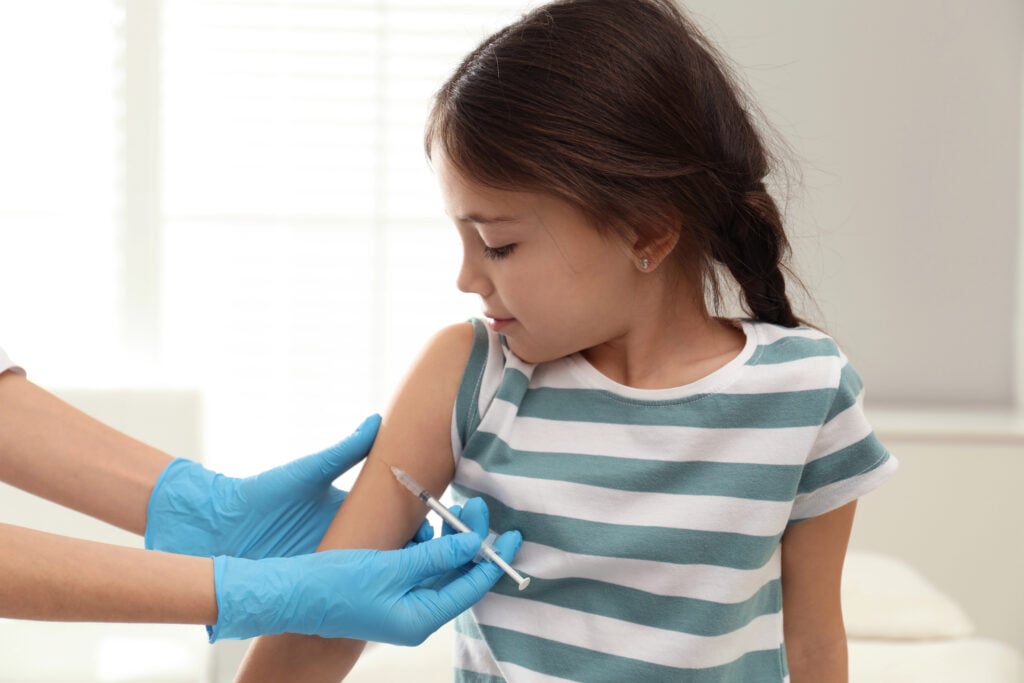
It’s back-to-school time, and that means scheduling the annual physical and vaccine updates. However, across the U.S., vaccination compliance rates are dropping, and in one state, there’s now a promise to eliminate mandates.
Antivax sentiments have been on the rise in the U.S., especially since the backlash over COVID vaccines. Now, as federal changes take place regarding vaccination access in Florida, there’s a move to eliminate mandatory vaccination for school entry.
In fact, the state’s Surgeon General (appointed by Governor Ron DeSantis in the wake of COVID) just compared mandates to slavery, according to Today.
How This Policy Would Change Parenting In Florida

The term “Mandate” is somewhat loosely defined when it comes to vaccination. Currently, while every state in the U.S. requires certain vaccinations for kids to enter school, every state allows exemptions for health reasons, almost all allow exemptions for religious beliefs, and many even allow parents to opt out just due to personal opinion.
That opting out is more onerous in some states than others. In Florida, to opt out for religious beliefs, one must merely ask for a form (available at all health departments), fill it out, and turn it in — and according to Florida’s state health website, the only information required is the child’s name, birthdate, and parents’ names. There’s no requirement to prove that immunization violates one’s religious beliefs, or even to provide any information about those beliefs, and the state is obligated to accept the document.
In other words, anyone in Florida can already opt out of vaccinating their child pretty easily.
If Surgeon General Joseph Ladapo’s promises are carried out, it won’t change much for people who genuinely oppose vaccination; nor will it prevent other parents from continuing to vaccinate their children properly.
However, it may mean that parents who don’t have strong opinions on vaccination, and/or those with limited medical access, decide that skipping the currently required shots is the path of least resistance, which may lower the number of vaccinated kids in schools.
Vaccination Rates Have Already Fallen
According to Axios, Florida is not alone in its declining vaccine rates.
An estimated 4.8% of Florida’s kindergartners were opted out in the past school year for nonmedical reasons, more than doubling the percentage from a decade ago. It’s one of 36 states that have seen an increase in vaccine rejection, and it has one of the highest rates of opt-outs.
We’ve already seen the effects of some of the growing antivax sentiment, such as with the measles outbreak in Texas, and last year, around this time, we saw an unusually large surge in whooping cough, walking pneumonia, RSV, and other respiratory illnesses.
Health experts have expressed concern about the risks of these illnesses hitting an under-vaccinated population.
If Your Kid Is Vaccinated, Should You Care If His Classmates Are?

A common antivax refrain is the claim that if your child is vaccinated, you shouldn’t worry about other kids being immunized. After all, the vaccine protects your child, right?
This is only partially true.
Vaccines have varying efficacy, and herd immunity makes the world a safer place.
For example, according to the CDC, if your child has received both doses of the MMR (measles, mumps, rubella) vaccine, they are 97% protected against measles. That means most kids with that level of protection won’t get sick — but if every kid in his class has also had the full vaccination course, then he’s also less likely ever to encounter the disease, which is even more protection.
The effectiveness of the pertussis vaccine shows a similar but more drastic situation: it’s between 70% and 90% effective in preventing severe illness. Therefore, if every child in school is protected, then every child is far safer than any child would be if they were vaccinated and their classmates were not.
Medical exceptions, such as those for children who cannot receive a particular vaccine, only exacerbate the situation. Those children, as well as kids (and adults) with compromised immune systems, may rely entirely on herd immunity to be safe.
Is Florida The Only Concern?
Parents in other states should also be aware of the risk, because antivax sentiments are surging across the country.
California, Maine, Connecticut, New York, and West Virginia are the only states that allow medical exemptions. If you live in any other state, kids are getting nonmedical exemptions from vaccination and attending public schools unprotected, according to the National Coalition of State Legislatures.
Florida is also a popular vacation state, which means that exposure there can travel widely, and antivax legislation in that state can quickly lead to a nationwide epidemic.
What Should Parents Do?
Discuss your child’s vaccines with your pediatrician. If you have concerns, consult a doctor rather than relying on social media posts or other sources that may contain inaccurate or biased information.
If your doctor recommends an altered vaccine schedule for your child, follow their recommendations. Otherwise, the safest choice for most kids is immunization according to the national recommended schedule.
If you have concerns about your child’s immunity, consult with your pediatrician to discuss the best ways to keep them safe. It’s best to limit contact with newborns until their immune systems have had a chance to develop and they’ve received their initial vaccinations. During severe outbreaks, it may be advisable to continue limiting social contact.
Ensure that older children and adults in the home are up to date on their vaccinations as well. This is called “cocooning” and helps limit your newborn’s exposure!
For school-aged children, stay informed about local situations and make decisions as necessary when outbreaks or surges of communicable diseases occur.

